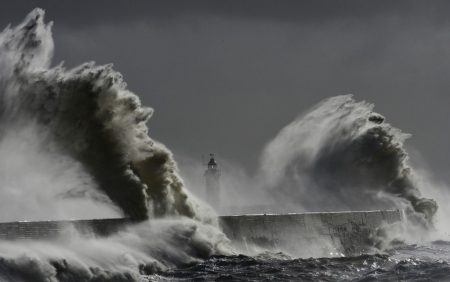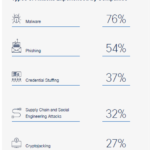January 11, 2019 – For the last few months several reports have come out indicating that ocean temperatures are rising faster than what was presented at the most recent COP meeting in Poland. As one academic stated, “if you want to see where global warming is happening, look in our oceans.”
The ocean is the world’s largest carbon sink and it appears that it is soaking up heat from the atmosphere in record amounts. And unlike the atmosphere which sees more significant variation from weather events, the ocean acts like a sponge accumulating the solar energy surplus and converting it into heat. At the rate the heating is going, without any potential acceleration from even higher atmospheric heating, the world’s oceans will see an average temperature rise in the first 2,000 meters (6,600 feet) of the water column, of 0.78 Celsius (1.4 Fahrenheit).
The temperature of the ocean is being measured constantly by a network of floating and submersible sensors called Argo, that have been deployed since 2000. Some 3,900 of them have been deployed to study changes in the ocean environment from temperature to pH levels, and more.
Although the sensors have only been in place since 2000, other data sources have given us a picture of the changes happening since 1971 when typically, temperature sampling was done by more primitive means. That’s why we have a picture of the 39 years before 2010 which tells us the amount of warming in the ocean has equaled 0.1 Celsius (0.18 Fahrenheit). And the pace of warming appears to be accelerating with 2018 being the warmest for ocean ever recorded, beating out 2017, the last record holder.
The latest study is described today in an article appearing in Science entitled, “How fast are the oceans warming?” The authors Lijing Cheng, from the Institute of Atmospheric Physics at the Chinese Academy of Sciences, in Beijing, Kevin Trenberth, Distinguished Senior Scientist, Climate and Global Dynamics Laboratory, National Center for Atmospheric Research, and Zeke Hausfather, an energy systems analyst and environmental economist at UC – Berkeley, in the United States, have assembled a time series showing ocean heating from 1960 to 2010 to have been stronger than what was reported by the IPCC’s Fifth Climate Assessment in 2013. The authors compiled data describes an ocean that is the main memory of climate change on Earth, and that is taking up 93% of the energy imbalance caused by increasing greenhouse gases in the atmosphere from human-produced sources.
Using trend analysis the authors project ocean warming to become even more intense throughout the remainder of the 21st century if inaction remains the human response to rising atmospheric greenhouse gas levels. They note that the warming of the ocean has a number of other impacts including:
- ocean volume expansion from heating which accelerates sea level rise.
- melting of polar sea ice as the oceans at the extremes of our planet heat up.
- stronger ocean-fed storms with hurricanes and typhoons of greater intensity and longevity.
- declining levels of oxygen within the ocean.
- destruction of coral reefs and the biodiversity that inhabits them.
The trends project warming in the upper ocean, the water column above 2,000 meters, to be 2,020 Zetajoules between the years 2081 and 2100. That compares to the 336.67 Zetajoules of warming in the past 60 years. The authors point out that if the targets of the Paris COP21 Agreement were met that warming by the end of the century would be cut nearly in half, to 1,037 Zetajoules. A Zetajoule is equal to a joule followed by 21 zeros. A joule equals 1 watt of energy. It takes approximately 9,000 watts to raise the temperature of one cup of water from 0 to 100 Celsius, its boiling point. So add 18 more zeros to get the equivalent energy in watts for just one Zetajoule. That’s a lot of energy being added to our world ocean. Let’s hope we have the foresight to stop this warming before the frog in the pot on the stove boils to death.
















